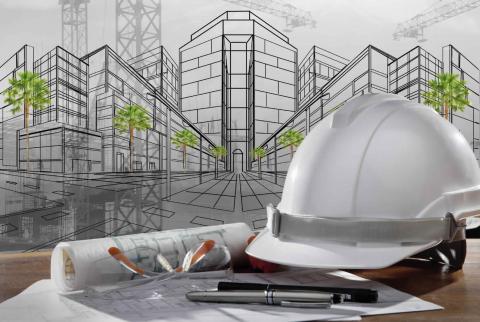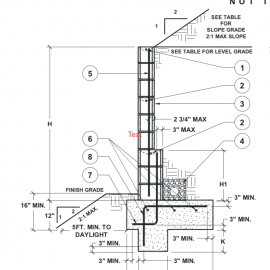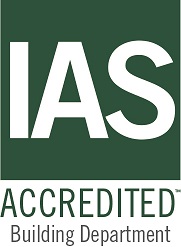In 1957, an industry group known as the Trailer Coach Association (TCA) representing "trailer" manufacturers sponsored legislation that made it unlawful after September 1, 1958 for any person to sell or offer for sale within California, any trailer not in compliance with construction regulations of the Department of Industrial Relations, Division of Housing. This was the first by any state to regulate trailer (also known as "trailer coaches") construction and the predecessor to today's modern codes regulating mobile home, manufactured home, commercial modular, special purpose commercial modular, and recreational vehicle construction.
In the beginning, all types of trailers were entitled "trailer coaches" in the law and regulations. As time passed and manufacturers began manufacturing specific types of units for different markets and uses, the names "mobile home" and "commercial modular" emerged. In 1979, the name "special purpose commercial modular" was added in order to separate smaller vehicular type commercial modular with a high degree of mobility from larger transportable structures generally intended for extended or permanent installation.
In 1976, the U.S. Department of Housing and Urban Development (HUD) adopted preemptive federal regulations for the construction of mobile homes (now manufactured homes). The HUD definition for "mobile home" was essentially the same as California's existing definition except that it applied only to single-family dwellings, while a California mobile home could consist of two dwelling units. In 1980 the U.S. Congress legislated a change in terminology from "mobile home" to "manufactured home," that took effect on January 1, 1981. In 1982, HUD changed the name usage from "mobile home" to "manufactured home."
The following may help in understanding the types of units subject to the Department's manufactured housing programs:
Manufactured Homes (includes mobile homes) are "single-family dwellings" transportable in one or more sections constructed to a federally preemptive standard, (legal definition contained in Health and Safety Code Section 18007).
Multi-unit Manufactured Homes are one or two family dwellings transportable in one or more sections built to Department regulations designed to contain no more than two dwelling units. (legal definition contained in Health and Safety Code Section 18008.7).
Recreational Vehicles are vehicles designed for recreational, seasonal, or emergency occupancy and are built to nationally recognized recreational vehicle standards. Effective January 1, 1999, Chapter 293 of the 1998 Statutes (AB 1984, Miller) repealed the Department's authority to review and approve plans, conduct inspections, and issue insignia of approval to indicate compliance with applicable standards. The remaining authority is to investigate possible violations by a manufacturer "at the factory." Park trailers are included within the definition of a recreational vehicle.
Commercial Modular are transportable structures (not vehicles) greater than 8 ft. 6 in. wide or 40 feet long requiring a permit to be moved on the highways, which are designed for human occupancy for industrial, professional, or commercial purposes, and are built utilizing nationally recognized "model" building codes adopted by reference into Department regulations (legal definition contained in Health and Safety Code Section 18001.8).
Special Purpose Commercial Modular are vehicles that may be moved on the highways without a permit, without structural standards but with standards like plumbing, electrical and mechanical standards as used for commercial modular. A special purpose commercial modular includes a mobile food preparation unit and includes commercial modular occupancy vehicles no larger than 8 ft. 6 in. wide or 40 ft. long, (legal definition contained in Health and Safety Section 18012.5).
The Department of Housing and Community Development was once the exclusive HUD approved inspection agency for new manufactured home construction, but since July 1, 1986, that responsibility has been shared with HUD-approved private inspection agencies. The Department also provided design approval service for "manufactured homes" until January 1, 1987. All such design review is now provided by private design approval agencies approved by HUD for all manufactured housing produced in California.
On April 1, 1989, the design approval and in-plant inspection of mobile homes, commercial modular, special purpose commercial modular, and recreational vehicles was delegated to Department approved private Quality Assurance Agencies (inspections) and Design Approval Agencies (design approvals).
The Department remains active in the promulgation of regulations for mobile homes, commercial modular, and special purpose commercial modular construction, by monitoring the performance of Department-approved Quality Assurance and Design Approval Agencies. The Department also, as applicable, approves designs and performs inspections when the construction, fire-life safety, electrical, plumbing or mechanical systems are altered from the originally approved design.
The State Mobilehome Park Act, Division 13 Part 2.1 of the California Health and Safety Code and the related State Regulations, permit the assumption of enforcement responsibilities for construction, use, maintenance and occupancy of the mobile home parks by the City or County. Section 1004 of Title 25 of the California Code of Regulations (CCR) sets forth the steps by which local enforcement is achieved.
The City of Rancho Cucamonga is responsible for enforcement of mobile home parks and modular homes within the city limits per Division 13 Part 2.1 of the California Health and Safety Code.
Title 25 - California Code of Regulations for Mobilehome Parks & Mobilehome Installations
Mobilehome Installation Guide
Mobilehome Park Inspection Resident Information Booklet - English
Mobilehome Park Inspection Resident Information Booklet - Spanish
Mobilehome Park Inspection Operator Information Booklet






